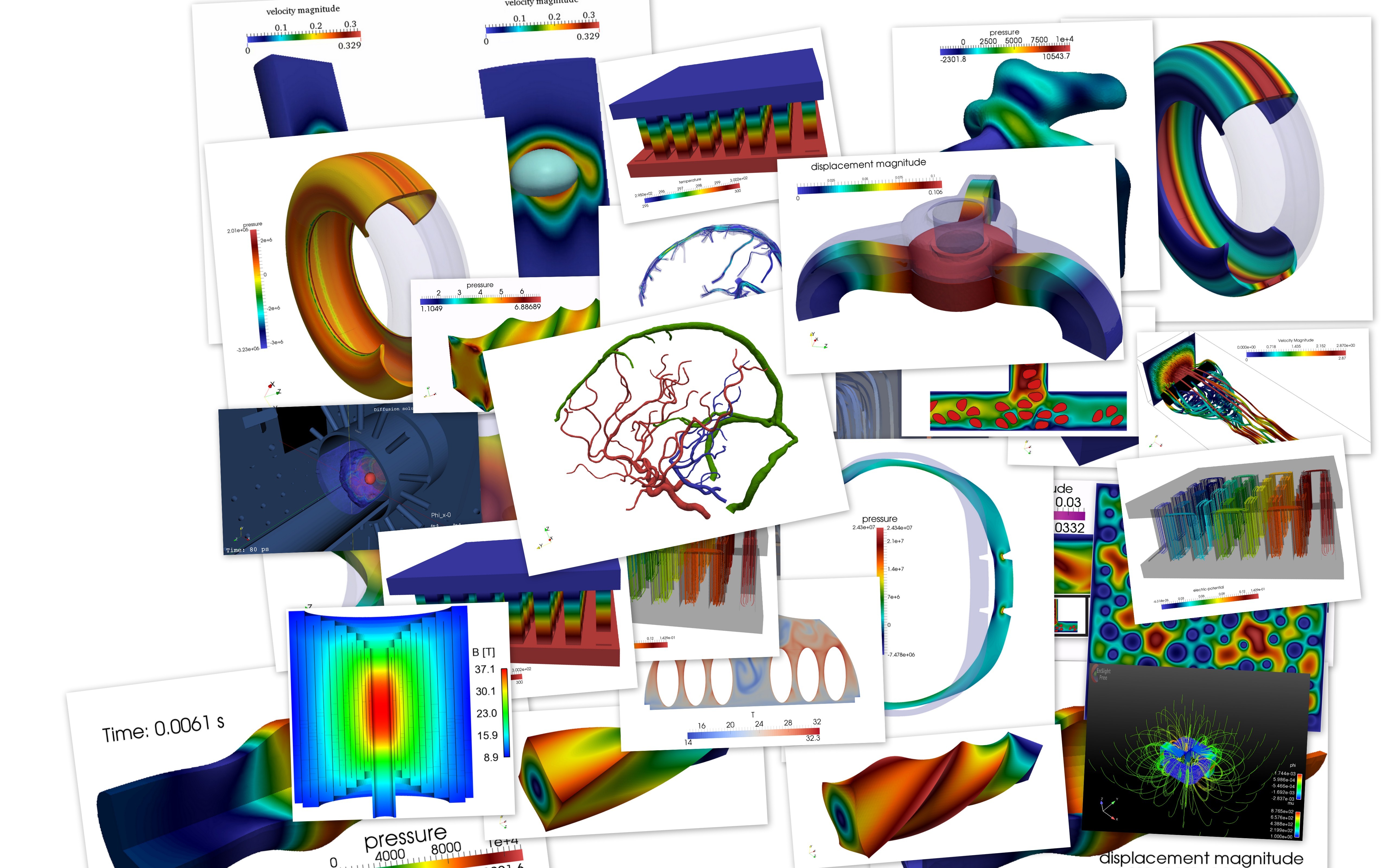Feel++ documentation
Welcome to Feel++ documentation! Feel++ is an Open-Source C++ library which allows to solve a large range of partial differential equations using Galerkin methods, e.g finite element method, spectral element method, discontinuous Galerkin methods or reduced basis methods. Feel++ enables parallel computing in a seamless way and allows to solve large scale systems up to tens of thousands of cores.
| Stable | Latest |
|---|---|
| The latest released version of Feel++ is 0.110 and the documentation will be only updated to fix issues. The current development version of Feel++ is latest and the associated documentation may be updated anytime. |
| The Feel++ documentation introduce the Feel++ concepts, the process to build and run an application and the process to run a toolbox application. New user should begin with the User Manual. |
| You wish to contribute? Please consult the contribute section to learn how to proceed! |
3. Feel++ Toolboxes
Feel++ toolboxes provides a environment for modeling and solving various kinds of scientific and engineering problems : Heat-transfer, CFD, CSM, FSI, Thermo-Electric, … |
|
5. Infrastructure
Feel++ is available on various supercomputing infrastructures.
- Atlas
-
Atlas is our local computing resource at Cemosis and IRMA laboratory. We open access to Atlas
- Alsacalcul
-
Alsacalcul is the supercomputer at Université de Strasbourg. If you are a member of the university, you have access to Alsacalcul either through best effort or through dedicated calls. If you are a company, Cemosis is in charge of selling computing hours on Alsacalcul and providing associated services.
- Finis Terrae 2
-
As one of the basic component of the MSO4SC E-INFRA H2020 project, Feel++ is available on Finis Terrae 2(FT2) from CESGA natively and via Singularity. If you are a CESGA/FT2 user, you have access to Feel++.
6. External Tools
6.1. Salome
Feel++ can use Salome and MeshGems.
Feel++ will soon be integrated with Salome.
Feel++ can use a license for MeshGems.
6.2. Slurm
How use Slurm for run Feel++ on supercomputing infrastructures.
7. Get Help
The Feel++ project is developed to help you easily do (i) modelisation simulation and optimisation and (ii) high performance computing. But your feedback is invaluable to make progress! We encourage you to ask questions and discuss any aspects of the project on the discussion list, on Twitter or in the chat room.
The Feel++ organization on GitHub hosts the project’s source code, issue tracker, and sub-projects.
- Source repository (git)
- Issue tracker
- Feel++ organization on GitHub
8. How to Contribute
In the spirit of free software, everyone is encouraged to help improve this project. If you discover errors or omissions in the source code, documentation, or website content, please don’t hesitate to submit an issue, open a pull request with a fix or even directly Edit the documentation pages. New contributors are always welcome!
Here are some ways you can contribute:
-
by using develop versions
-
by writing or editing documentation
-
by writing specifications
-
by writing code — No patch is too small.
-
fix typos
-
add comments
-
write examples!
-
write tests!
-
-
by refactoring code
-
by fixing issues
-
by reviewing Pull Requests
The Contributing guide provides information on how to create, style, and submit issues, feature requests, code, and documentation to the Feel++ Project.
9. Copyright and Licensing
Copyright © 2011-2019 Feel++ Consortium. Free use of this software is granted under the terms of the LGPL and GPL Licenses.
See the LICENSE file for details.
10. Authors
Feel++ development is led by Christophe Prud’homme and Vincent Chabannes. It has received contributions from many other individuals.
The project was initiated in 2006 by Christophe Prud’homme and based initially on lifeV and completely re-written since then.
 .pdf
.pdf
